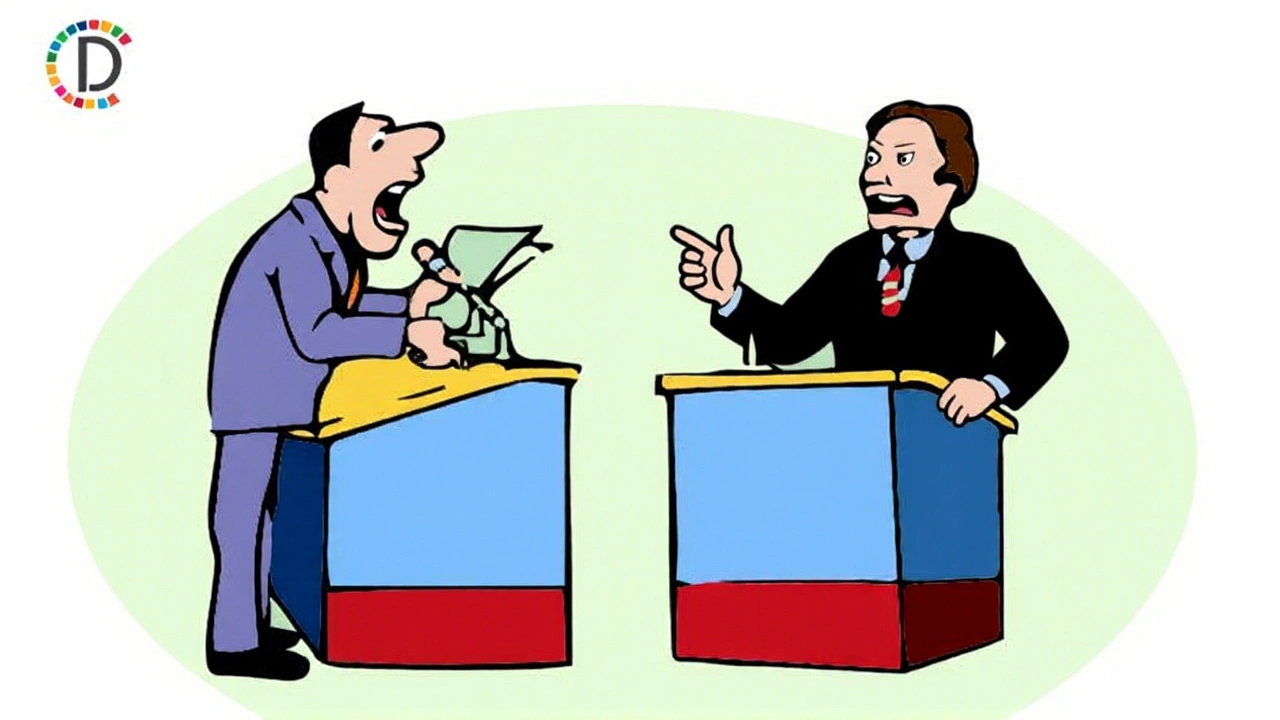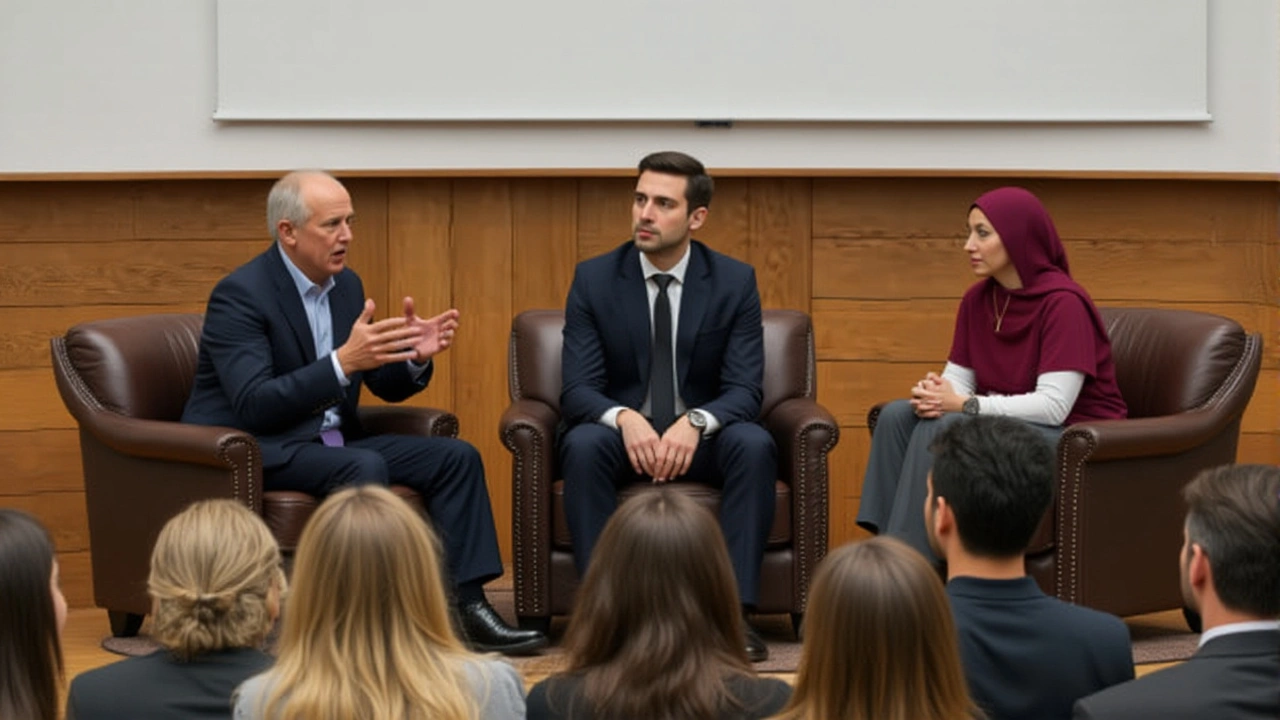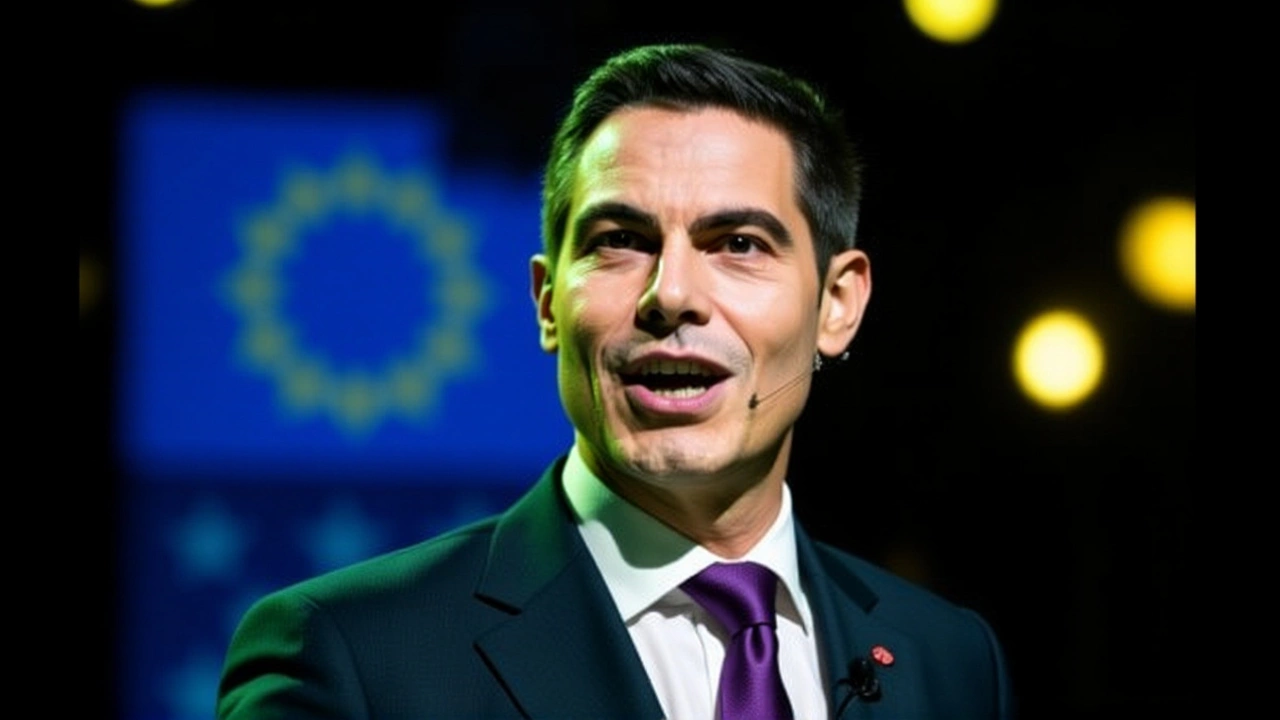When Rob Jetten stepped onto the stage in The Hague on Wednesday night, surrounded by Dutch and EU flags, he didn’t just celebrate a win—he announced a shift in the soul of Dutch politics. His centrist Democrats 66 (D66) party, according to exit polls from the Dutch parliamentary electionNetherlands, secured 27 seats, edging out Geert Wilders’ far-right Party for Freedom (PVV) for the first time in years. The result wasn’t just a victory—it was a rejection of the bitterness that has dominated Dutch politics since 2021. And the man who pulled it off? A former middle-distance runner who once paced Olympic gold medalist Sifan Hassan on training tracks, now leading a nation toward renewal.
A Runner Who Learned to Lead
Jetten’s path to power didn’t start in a parliamentary chamber. It began on the asphalt of Papendal National Sports Centre, where, as a teenager in Uden, he trained with the Seven Hills Running Team. "I wanted to be a top athlete," he once said in a Radboud University interview. He didn’t make the Olympics, but he didn’t quit. He carried the discipline into his studies at Radboud University in Nijmegen, where he earned both his bachelor’s and master’s in Public Administration. The university wasn’t chosen for its prestige—it was chosen because it was near the training grounds.His first real taste of activism came at 17, after the 2004 murder of filmmaker Theo van Gogh. In Uden, a Turkish primary school was set ablaze by boys from his own football team. "They were up to a bit of mischief," Jetten later recalled. But that night, he realized mischief had consequences. He organized youth campaigns to push back against the growing image of his town as a far-right stronghold. "You have to act if you disagree with something," he said. That moment, more than any policy paper, shaped his political DNA.
From 'Robot Jetten' to Relatable Leader
When he entered parliament in 2017 at age 30, he was quickly labeled "Robot Jetten"—a stiff, glasses-wearing technocrat who spoke in rehearsed lines. He didn’t fight the nickname. He changed it. After laser eye surgery in 2020, he ditched the glasses. He started telling stories like he was sitting at a pub table with friends. "The best advice I got? Speak like you’re with your mates," he told a Dutch media outlet. That shift paid off. By 2023, at 36, he became the youngest-ever leader of D66.His rise wasn’t just about image. He served as Minister for Climate and Energy Policy from 2022 to 2024, then as Deputy Prime Minister until July—only to be sidelined in a cabinet reshuffle. Many assumed his political momentum was fading. Instead, he used the break to campaign harder, smarter. He appeared on the popular quiz show The Smartest Person, filmed in spring 2024 and broadcast just weeks before the vote. Viewers saw him witty, calm, and sharp. Not a politician. A guy who knew his stuff—and didn’t take himself too seriously.

The Vision: Opportunities for All
Jetten’s platform isn’t radical—it’s relentlessly practical. He calls it "opportunities for all." That means: more funding for vocational schools, faster integration for refugees, and green innovation grants for startups in shrinking towns like his hometown of Uden. He’s pushing for smart mobility—electric buses in rural areas, bike lanes in cities, digital infrastructure that connects the Netherlands’ scattered communities."We’re not just a country of Amsterdam and Rotterdam," he told AFP. "We’re also the towns where the train stops once an hour and the pharmacy closes at five. Those places deserve investment too." His pro-EU stance is unapologetic. "Without European cooperation, we are nowhere," he declared after the win. In a Europe where nationalist parties are surging, Jetten’s message is a counterpoint: progress isn’t built on walls, but on shared research, cross-border rail projects, and climate partnerships. He’s already in talks with the Labour Party and Christian Democratic Appeal to form a coalition.
What Comes Next?
The next few weeks will be tense. While D66 won the most seats, no party has a majority. Jetten will need to broker a deal with parties that have very different views on immigration, taxation, and defense spending. His biggest challenge? Convincing voters who backed him for positivity that compromise won’t dilute his message.His team is already preparing for the next phase: a "New Deal for the Netherlands" rollout, with town halls in every province. He’s not just seeking power—he’s seeking trust. And for a man who once paced a champion on a track, that’s the real finish line.

Background: The Making of a Political Outsider
Before politics, Jetten worked as a management trainee at ProRail, the Dutch railway authority. He later became a regional supply manager in the northeast. That experience gave him a ground-level view of infrastructure gaps—something he now tackles as policy. His restaurant dream? Still alive. He jokes he’ll open a small place in Portugal after politics. "But not until we fix the schools first."Frequently Asked Questions
How did Rob Jetten’s athletic background influence his political style?
Jetten’s years as a runner taught him discipline, pacing, and resilience—traits he now applies to political strategy. Just as he paced Sifan Hassan by maintaining steady rhythm, he’s led D66 with consistent messaging, avoiding the emotional spikes of populist campaigns. His endurance training also mirrors his long-term vision: incremental progress over flashy wins.
Why did voters respond to Jetten’s positive campaign in a time of rising far-right sentiment?
After years of polarizing rhetoric from PVV and other populist groups, voters—especially younger and urban demographics—craved a message of unity and practical solutions. Jetten’s focus on education, green jobs, and European collaboration offered a credible alternative without fearmongering. His TV quiz show appearance humanized him, making voters see him as approachable, not just polished.
What role did the 2004 burning of the Turkish school play in Jetten’s political awakening?
The incident in Uden was Jetten’s first encounter with how prejudice can turn violent. Seeing classmates set fire to a school because of xenophobic rumors made him realize silence was complicity. He organized peer-led dialogues and community events to counter hate—early proof that he believed in action over anger. That experience still informs his refugee integration policies today.
How does Jetten’s pro-EU stance differ from other Dutch centrist leaders?
Unlike some centrists who treat the EU as a necessary bureaucracy, Jetten frames it as a lifeline. He cites joint climate funding, cross-border high-speed rail projects, and shared research grants as tangible benefits. His call to "bring the Netherlands back to the heart of Europe" isn’t symbolic—it’s economic. He argues that Dutch innovation in smart mobility and renewable tech thrives only within EU-wide frameworks.
What challenges does Jetten face in forming a coalition government?
While D66 won the most seats, it’s still far from a majority. Negotiations with the Labour Party and Christian Democrats will require compromises on taxation and immigration. Jetten’s green growth agenda may clash with more fiscally conservative partners. His strength lies in his reputation for pragmatism—but if he concedes too much, he risks alienating the voters who backed him for change.
Is Jetten’s leadership style sustainable beyond this election cycle?
His relatable, story-driven approach has revitalized D66’s image, but sustaining it will require delivering results. If he can pass landmark education reforms or secure EU green funding for rural regions, his popularity will grow. But if coalition talks stall or policies stall, the "Robot" label could return. His ability to adapt—like ditching glasses and embracing humor—suggests he can evolve. But politics, unlike running, has no finish line.
